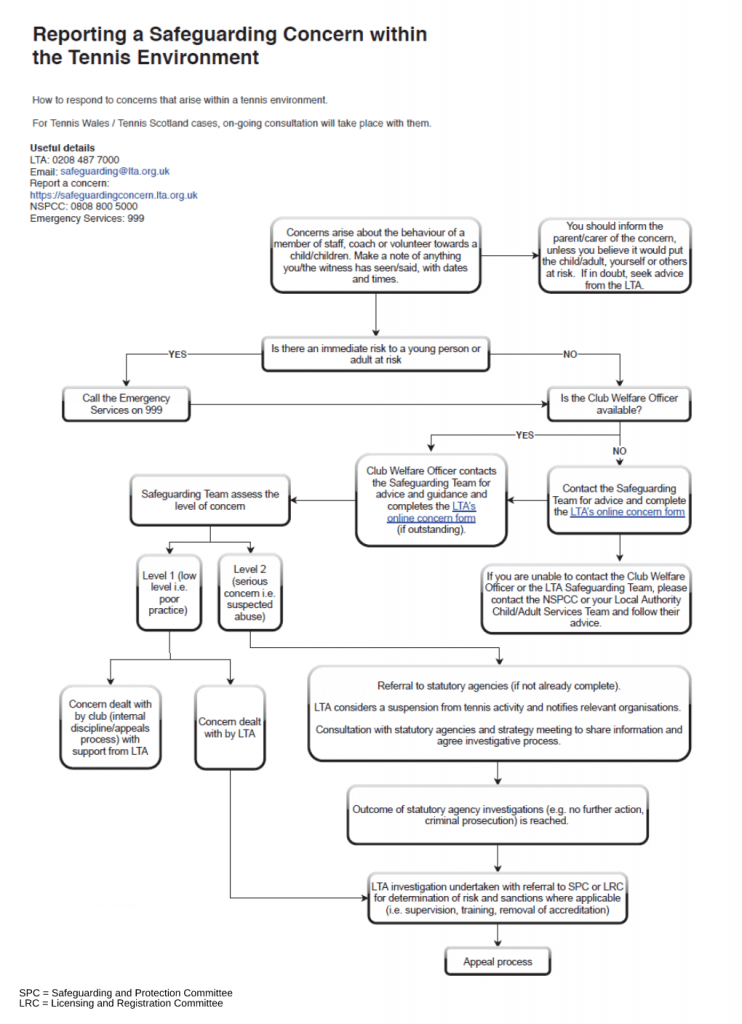
The Bromley Cricket Club is committed to prioritising the well-being of all children and adults at risk, promoting safeguarding in our club at all times, including all programmes and events we run. All activities, events and trips arranged by the club run in accordance with the LTA’s Safeguarding at Events and Competitions guidance. This Policy strives to minimise risk, deliver a positive tennis experience for everyone and respond appropriately to all safeguarding concerns/disclosures.
Child: a person under the age of eighteen years.
Note that some legislation in Scotland defines a child as a person under sixteen years old. However, where there is any safeguarding concern, anyone under the age of 18 is regarded as a child unless advised otherwise by the LTA Safeguarding Team .
Adult at risk: a person aged eighteen years or over who is, or may be, in need of community care services by reason of disability, age or illness; and is, or may be, unable to take care of, or unable to protect him or herself against abuse or neglect.
Safeguarding children: protecting children from abuse and neglect, preventing the impairment of children’s health or development, ensuring that they grow up in circumstances consistent with the provision of safe and effective care, and taking action to enable all children to have the best life chances.
Safeguarding adults at risk: protecting adults from abuse and/or neglect. Enabling adults to maintain control over their lives and make informed choices without coercion. Empowering adults at risk, consulting them before taking action, unless someone lacks the capacity to make a decision, or their mental health poses a risk to their own or someone else’s safety, in which case, always acting in his or her best interests.
(See appendix A for full glossary of terms).
This Policy is applicable to all staff, volunteers, committee members, coaches and club members. It is in line with national legislation and applicable across the UK.
Advice, guidance and support is available from the LTA Safeguarding Team.
SAFEGUARDING IS EVERYONE’S RESPONSIBILITY: NOT RESPONDING TO A SAFEGUARDING CONCERN IS NOT AN OPTION.
Where there is a safeguarding concern/disclosure:
Breaches of this Policy and/or failure to comply with the outlined responsibilities may result in the following:
Actions taken by players, parents or carers, staff, consultants, volunteers, officials, coaches inside or outside of the club that are seen to contradict this Policy may be considered a violation of this Policy.
Where an appeal is lodged in response to a safeguarding decision made by the club, the individual should adhere to the club’s appeal procedure.
Safeguarding children and adults at risk requires everyone to be committed to the highest possible standards of openness, integrity and accountability. As a club, we are committed to encouraging and maintaining a culture where people feel able to raise a genuine safeguarding concern and are confident that it will be taken seriously.
What is whistle blowing?
In the context of safeguarding, “whistle blowing” is when someone raises a concern about the well-being of a child or an adult at risk.
A whistle blower may be:
How to raise a concern about a child or an adult at risk at the club
If a child or an adult at risk is in immediate danger or risk of harm, the police should be contacted by calling 999.
Where a child or an adult at risk is not in immediate danger, any concerns about their well-being should be made without delay to the Club Welfare Officer. The Club Welfare Officer will pass the details of the concern on to the LTA Safeguarding Team at the earliest opportunity and the relevant local authority and the police will be contacted, where appropriate.
If, however, the whistle blower does not feel comfortable raising a concern with the Club Welfare Officer, the whistle blower should contact the LTA Safeguarding Team directly on 020 8487 7000, the Local Authority Designated Officer (LADO) or the NSPCC on 0808 800 5000.
The Club Welfare Officer can be contacted on: 0798 9393 952 or email julia10conway@googlemail.com
Information to include when raising a concern
The whistle blower should provide as much information as possible regarding the incident or circumstance which has given rise to the concern, including:
What happens next?
All concerns raised by a whistle blower about the well-being of a child or an adult at risk will be taken seriously and every effort will be made to deal with each concern fairly, quickly and proportionately.
If the whistle blower does not believe that the concern has been dealt with appropriately and wishes to speak to someone outside the club or the LTA Safeguarding Team, the NSPCC Whistleblowing advice line should be contacted on 0800 028 0285 or by emailing help@nspcc.org.uk.
Support
The club will not tolerate any harassment, victimisation or unfair treatment of, and will take appropriate action to protect, whistle blowers when they raise a concern in good faith.
Safeguarding: protecting children from abuse and neglect, preventing the impairment of children’s health or development, ensuring that children are growing up in circumstances consistent with the provision of safe and effective care, and taking action to enable all children to have the best life chances. Enabling adults at risk to achieve the outcomes that matter to them in their life; protecting their right to live in safety, free from abuse and neglect. Empowering and supporting them to make choices, stay safe and raise any concerns. Beginning with the assumption that an individual is best-placed to make decisions about their own wellbeing, taking proportional action on their behalf only if someone lacks the capacity to make a decision, they are exposed to a life-threatening risk, someone else may be at risk of harm, or a criminal offence has been committed or is likely to be committed.
Abuse and neglect
Physical abuse: A form of abuse which may involve hitting, shaking, throwing, poisoning, burning or scalding, drowning, suffocating or otherwise causing physical harm to a child or adult at risk. Physical harm may also be caused when a parent or carer fabricates the symptoms of, or deliberately induces illness
Sexual abuse: Involves forcing or enticing a child or young person to take part in abuse sexual activities, not necessarily involving a high level of violence, whether or not the child is aware of what is happening. The activities may involve physical contact, including assault by penetration (for example, rape or oral sex) or non-penetrative acts such as masturbation, kissing, rubbing and touching outside of clothing. They may also include non-contact activities, such as involving children in looking at, or in the production of, sexual images, watching sexual activities, encouraging children to behave in sexually inappropriate ways, or grooming a child in preparation for abuse (including via the internet). Sexual abuse is not solely perpetrated by adult males. Women can also commit acts of sexual abuse, as can other children
Emotional abuse: The persistent emotional maltreatment of a child or adult at risk such as to cause severe and persistent adverse effects on their emotional development. It may involve conveying to a child/ adult at risk that they are worthless or unloved, inadequate, or valued only insofar as they meet the needs of another person; not giving them opportunities to express their views; deliberately silencing them or ‘making fun’ of what they say or how they communicate. It may feature age or developmentally inappropriate expectations being imposed, including interactions that are beyond a child or adult at risk’s developmental capability, as well as overprotection and limitation of exploration and learning, or preventing them participating in normal social interaction. It may involve seeing or hearing the ill-treatment of another. It may involve serious bullying (including cyber bullying), causing a child or adult at risk to feel frightened or in danger, or the exploitation or corruption of children. Some level of emotional abuse is involved in all types of maltreatment of a child, though it may occur alone.
Neglect: The persistent failure to meet a child/ adult at risk’s basic physical and/or psychological needs, likely to result in the serious impairment of their health or development. It may involve a parent or carer failing to:
It may also include neglect of, or unresponsiveness to, a child’s or adult at risk’s basic emotional needs. Neglect may occur during pregnancy as a result of maternal substance abuse.
Additional examples of abuse and neglect of adults at risk
Financial abuse: having money or property stolen; being defrauded; being put under pressure in relation to money or other property; and having money or other property misused.
Discriminatory abuse: treating someone in a less favourable way and causing them harm, because of their age, gender, sexuality, gender identity, disability, socio-economic status, ethnic origin, religion and any other visible or non-visible difference.
Domestic abuse: includes physical, sexual, psychological or financial abuse by someone who is, or has been a partner or family member. Includes forced marriage, female genital mutilation and honour-based violence (an act of violence based on the belief that the person has brought shame on their family or culture). Domestic abuse does not necessarily involve physical contact or violence.
Psychological abuse: including emotional abuse, threats of harm or abandonment, deprivation of contact, humiliation, blaming, controlling, intimidation, coercion, harassment, verbal abuse, isolation or withdrawal from services or supportive networks.
Organisational abuse: where the needs of an individual are not met by an organisation due to a culture of poor practice or abusive behaviour within the organisation.
Self-neglect: behaviour which threatens an adult’s personal health or safety (but not that of others). Includes an adult’s decision to not provide themselves with adequate food, clothing, shelter, personal hygiene, or medication (when indicated), or take appropriate safety precautions
Modern slavery: encompasses slavery, human trafficking, criminal and sexual exploitation, forced labour and domestic servitude. Traffickers and slave masters use whatever means they have at their disposal to coerce, deceive and force individuals into a life of abuse, servitude and inhumane treatment.
Appendix B: What to do if a disclosure from a child or adult at risk is made to you:
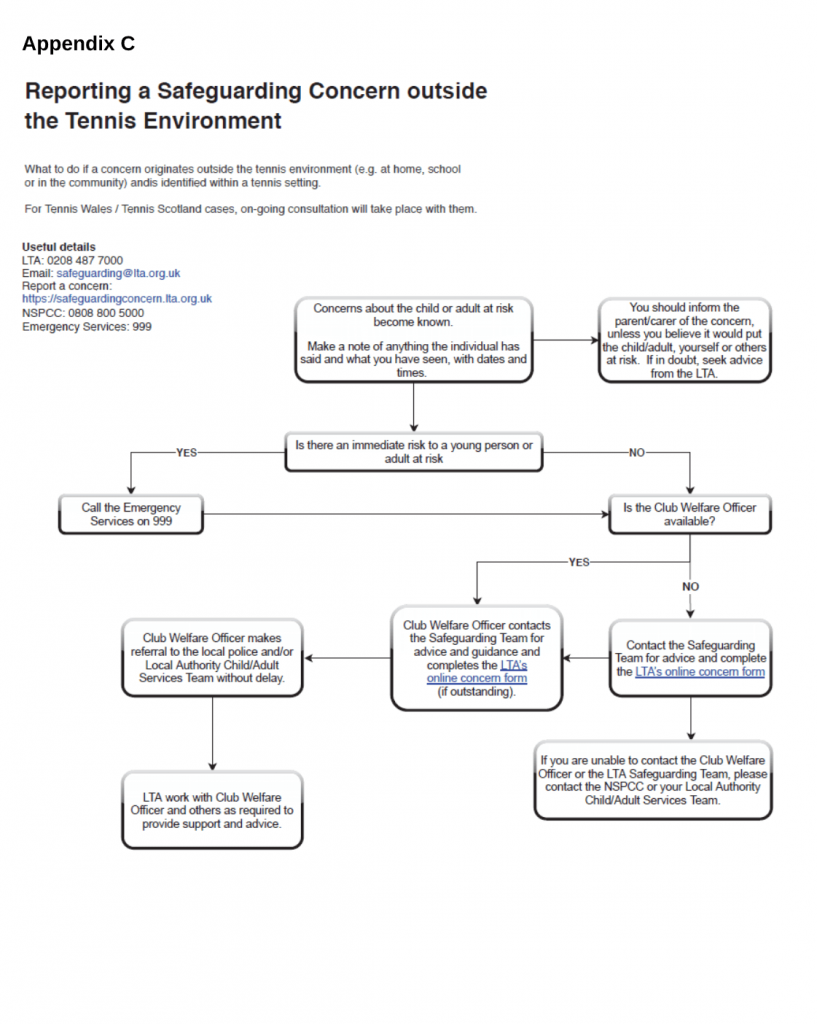
There has never been a better time to join Bromley Sports Club. If you are interested in being shown around our club, or for more information, please complete the form and we’ll be in touch shortly.
There has never been a better time to join Bromley Sports Club.


LTA Level 3 Performance Coach at Bromley Sports Club
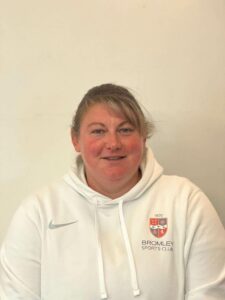
LTA Level 3 Coach at Bromley Sports Club
There is no better time to get in touch than now. Send an enquiry now to get the insights on how we get bring your child in to the cricket fold at Bromley Sports Club!

ENGLAND SQUASH LEVEL 4 HIGH PERFORMACE COACH

LTA Level 3 Coach at Bromley Sports Club

LTA Level 3 Coach at Bromley Sports Club
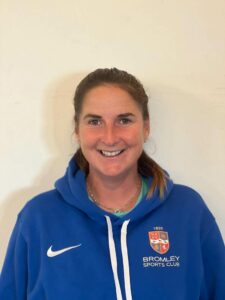
LTA Level 3 Club Coach at Bromley Sports Club
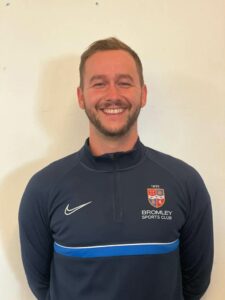
Head Coach & LTA Level 4 Senior Club Coach at Bromley Sports Club
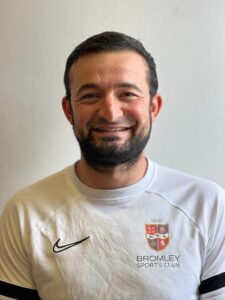
LTA Level 4 Performance Coach & Head of Performance at Bromley Sports Club
There has never been a better time to join Bromley Sports Club.
There has never been a better time to join Bromley Sports Club.

What To Do Next
One of our team will be in contact with you to discuss your membership and confirm details with you. You will then be invited down to the club to pick up your membership card and start enjoying the huge variety of activities available to you.
Get the Bromley Sports Club APP
Download our app so youre ready to start booking courts Click Here
Leave us a review
If you would be so kind as to leave us a review we would love to hear from you. Just click here to choose your favourite site to leave your review!
Links You Need
There are lots of ways to get in touch, learn about the club, find the contacts in the club you need, interact with coaches, get social and find out about all our superb social events we hold! Just Click Here
Membership Cards – Membership cards are provided by the Club office which provide access to the club if the doors that are locked and provide discounted member prices at the bar. useful. Membership cards can be provided for the junior members and the family. If you do not have a card/require additional cards please email the club office on admin@bromleysportsclub.co.uk
Off Peak Tennis – When joining on an Off peak all day Tennis membership, this means you have the ability to play and book tennis courts throughout Monday to Friday all day. There is no ability to play or book courts at weekends.
Off Peak Squash – When joining on an Off peak Squash membership, this means you have the ability to play and book courts throughout Monday to Thursday up until 5pm and all day Friday and Sundays. There is no ability to play or book courts at other times.
Squash Lighting Fee – Your yearly membership fee does not include your lighting fees. 45 minutes is £4.45 and 60 minutes is £6. This will be paid via direct debit on a monthly basis.
Tennis Outdoor Floodlight Fee – Your yearly membership fee does not include your flood light fees. This is paid after daylight hours at £8 per hour. This is paid via direct debit on a monthly basis.
Tennis Air hall Indoor Fees – Hourly off peak after 7pm – £16, All other times – £20 per hour. Only available while the air hall is inflated.
Bring guests with you – You are able to bring guests to play with you for a fee of £4. Guests are only able to come with you up to 3 times in the space of a 2 month period before being required to join as a member. Fees are taken on a Direct Debit on a monthly basis.
Cricket Enquiries – For any cricket enquiries please email Andrew Caswall on andrewcaswall@aol.com
Safeguarding – BSC operates policies and procedures to safeguard children and young people and we operate in accordance with the ECB guidelines. Further information about our safeguarding arrangements are visible around the club and on our website, bromleysportsclub.co.uk. Our Club welfare officer is Julia Conway and can be called on 0798 9393952.
Data Protection – The data protection law requires us to inform you how we deal with your data. It also requires us to ask some specific questions relating to how we use it.
How we store it – All information you give us on your application forms is stored on our server. Our server is secure and has a firewall in place. The data is also encrypted.
How we use it: – We will use your information for club related purposes only. We will send you information regarding club activities, developments and club business.
CHILDREN UNDER 16: – We do not contact children directly and only contact them through the parent. We do not take details of children’s mobile numbers or email addresses. Any details displayed apart from the name will be that of a parent.
WILL EVERYONE HAVE ACCESS? – We will not sell or give your details to any third parties. However, it may be useful for other members to have details of your phone number or email details for you and your family. This may be for say, squash or tennis leagues, tournaments, teams, arranging ladder matches, arranging friendly matches or other such happenings. Once you are a member you can go to the booking site and change the settings yourself if you change your mind.
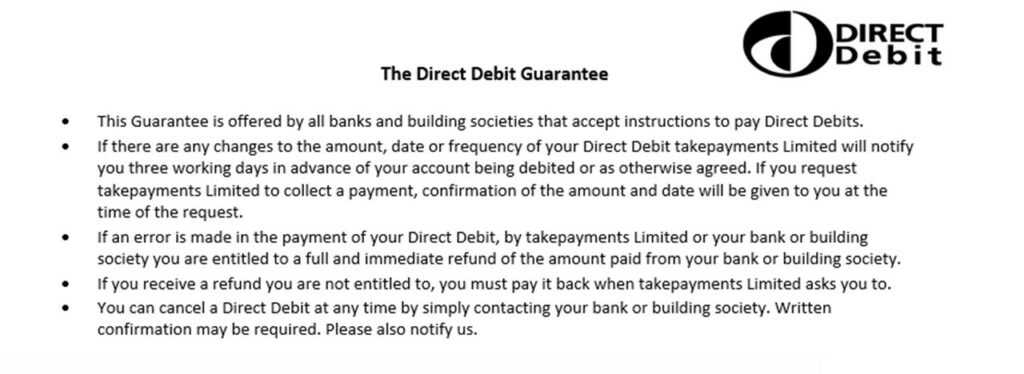
There has never been a better time to join Bromley Sports Club.
We offer our facilities for a range of event hiring purposes including adult parties, weddings, wakes, business conferences and more. Fill in the form below and one of our team will be in touch to discuss your requirements. Please note we are unable to offer event hiring for children’s parties.